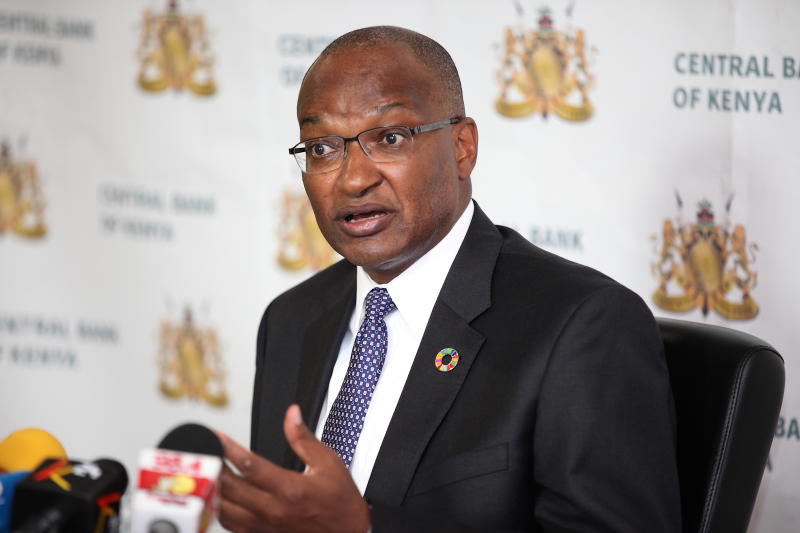×
The Standard e-Paper
Smart Minds Choose Us

Central Bank of Kenya (CBK) Governor Patrick Njoroge has told bank shareholders to expect lower returns on their investments.
Speaking on Monday during the launch of a regional economic update, Dr Njoroge said this would guarantee cheaper credit as the country prepares for the repeal of the law capping interest rates.